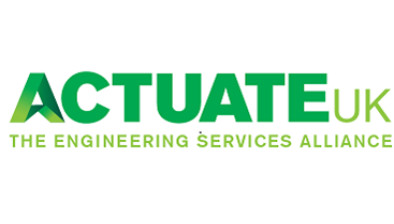 Trade associations from the UK’s construction sector have put housebuilding, training and procurement reform at the forefront of their wish lists ahead of next month’s general election.
Trade associations from the UK’s construction sector have put housebuilding, training and procurement reform at the forefront of their wish lists ahead of next month’s general election.
Publishing their respective election manifestos the lobby groups have detailed what commitments they would like to see from the major political parties.
In its Manifesto for the Built Environment supply chain, the Specialist Engineering Contractors’ Group (SEC Group) said a future government and parliament should commit to three-points for a world-leading UK specialist engineering supply chain in the built environment.
Bring legislation to protect all retention monies in a ring-fenced account, as first step towards zero retentions by 2025, and prioritise review of the ‘Construction Act’. From 2021 all publicly-funded built environment work over £1 million should be paid using Project Bank Accounts. Payment security will guarantee a sustainable supply chain of SMEs. By 2022 all publicity-funded infrastructure and building works should adopt smarter procurement methods as a pre-condition to the availability of funding. Best models of practice in public procurement contracts will drive positive change across the industry. Establish a joint government/industry task group with a remit to develop proposals for a statutory licensing scheme for contracting companies. Building on current initiatives, incentivise the industry to aim for greater efficiency and best quality standards that will create a level-playing field for competition.
Professor Rudi Klein, SEC Group’s CEO, said that the challenge for the industry was to become leaner and fitter and government policy can be the catalyst for this change.
He added: “We urge all political parties to adopt these points in their business & industry policies as they are essential levers for economic growth and increased productivity.”
An engineering services manifesto has been launched by the Building Engineering Services Association (BESA) and the Electrical Contractors’ Association (ECA) which adds to a recent submission by the ECA and BESA on the government’s industrial strategy consultation.
The five-point manifesto calls for:
Connecting the output of construction and operation of the UK’s built environment, and making it a strategic priority, to enable the sustainable delivery of economic, social and environmental benefits. Engineering services is uniquely positioned as a cornerstone of both sectors and has a central role in delivering these benefits throughout the lifetime of built assets, and, as a key enabler, should be selected by government for a ‘sector deal’. Ensuring that SME apprenticeship training is fully funded for the entire parliament. At present, there is significant concern that firms that are not required to pay the new apprenticeship levy may not be able to access the support they need to develop engineering and other technical skills. Ensuring government is a smart client and smaller businesses have stability of cash-flow and payment. A key request is for a digital payment platform in the public sector, linked to digital procurement processes. This would give greater transparency and speed to supply chain payment, and lower supplier risk. Making energy, heat and carbon efficiency a real sustainable delivery priority within the next parliament. Achievable energy efficiency goals, backed by government, need to be fulfilled if we are to meet our emissions reductions targets in the lowest cost way, as well as offering a way for businesses to improve their productivity. Improve productivity through action to enhance employee engagement. Government should introduce additional requirements in the procurement process to help mitigate against false self-employment and other tax avoidance schemes, and facilitate improved employer-worker collaboration, resulting in enhanced productivity. ECA CEO Steve Bratt and BESA chief executive Paul McLaughlin said: “The next government has a great opportunity to deliver an investment and regulatory climate in which industry thrives and where buildings and infrastructure support UK growth and productivity.
“Our five-point manifesto would support business, by delivering highly skilled apprenticeships, giving SMEs the opportunity to grow, and ultimately, improving UK productivity.”
The National Home Improvement Council (NHIC) have launched its industry-led manifesto outlining five key areas it feels the next UK government should focus on alongside negotiating Britain’s departure from the European Union.
 The NHIC wants all political parties to clearly establish in their manifestos how they would work with industry to overcome some of the fundamental challenges currently faced by the country, including not only the need to build more quality energy efficient homes, but also how to improve the quality of our existing housing stock.
The NHIC wants all political parties to clearly establish in their manifestos how they would work with industry to overcome some of the fundamental challenges currently faced by the country, including not only the need to build more quality energy efficient homes, but also how to improve the quality of our existing housing stock.
Anna Scothern, executive director of the NHIC, said: “Great Britain is one of the richest countries in the world, yet 4.5 million families still live in fuel poverty. The National Home Improvement Council believes that no individual or family should have to make ‘heat or eat’ choices each winter.”
She added: “27% of the UK’s CO2 emissions come from our existing 26 million homes and while demand for housing continues to rise with new house building failing year-on-year to meet the established government target of 1 million new homes by 2020, refurbishment, repair and maintenance must be an essential part of the new Government’s overall housing strategy.”
The Federation of Master Builders (FMB) also launched a five-point plan:
Ensure that the construction industry has enough skilled workers Introduce a flexible system of immigration that allows key strategic industries like construction to draw upon adequate levels of skilled labour from the EU and beyond. Commit to increasing the quality, duration and thoroughness of apprenticeships and thus improve the image of vocational training so that we can attract more young people into our industry.
Increase the supply of new homes The UK government should commit to building at least 200,000 new homes per year in England and encourage the delivery of 25,000 new homes in Scotland; 14,000 in Wales; and 11,000 in Northern Ireland. In England, continue to work with the house building industry to successfully implement key recommendations within the 2017 Housing White Paper that are designed to increase house building through SME builders.
Improve the quality of new and existing homes Introduce a mandatory warranty requirement for all domestic building works that require Building Regulations approval and structural engineering calculations. Commission a review of new homes warranties to establish whether the warranties currently provided are adequate.
Make homes more energy efficient Reduce VAT on housing renovation and repair work from 20% to 5% to encourage refurbishment work, including energy efficiency measures. Ensure that any government investment in reducing energy bills is targeted primarily at improving the energy efficiency of the UK’s homes.
Boost growth among construction SMEs Ensure that the overall regulatory burden on small businesses is reduced as part of the Brexit process. Improve public procurement for construction SMEs and ensure local firms win a higher proportion of local authority contracts post-Brexit.
 Trade associations from the UK’s construction sector have put housebuilding, training and procurement reform at the forefront of their wish lists ahead of next month’s general election.
Trade associations from the UK’s construction sector have put housebuilding, training and procurement reform at the forefront of their wish lists ahead of next month’s general election. The NHIC wants all political parties to clearly establish in their manifestos how they would work with industry to overcome some of the fundamental challenges currently faced by the country, including not only the need to build more quality energy efficient homes, but also how to improve the quality of our existing housing stock.
The NHIC wants all political parties to clearly establish in their manifestos how they would work with industry to overcome some of the fundamental challenges currently faced by the country, including not only the need to build more quality energy efficient homes, but also how to improve the quality of our existing housing stock.















